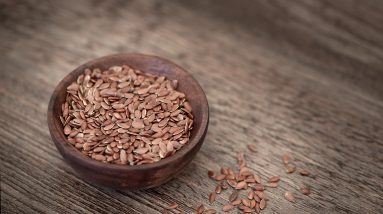
Breaking News: Unveiling the Lineups for the 2023 World’s Strongest Nation Teams
The annual World’s Strongest Nation (WSN) is a fitting battle of strength between two international superstars. This year, with former World’s Strongest Man (WSM) champions Eddie Hall (2017) and Martins Licis (2019) once again captaining Team UK and Team USA, respectively, the contest is sure to present another entertaining gauntlet in Liverpool, England. That’s especially true now that both superstars know who’s on their team.
On July 22, 2023, the Giants Live organization — which organizes the WSN and promotes the competition — revealed the full rosters for Team UK and Team USA over its Instagram page. Both lineups are star-studded with some of the biggest active names in strongman and strongwoman. The contest is scheduled to take place across the pond on November 18, 2023.
View this post on InstagramA post shared by GIANTS LIVE: WSM Arena Tour (@giantslivestrongman)
More from Breaking Muscle:
- Powerbuilding: The Training Method for Size and Strength
- How to Build Muscle: The Training and Diet Guide for Lifters
Here’s an overview of the Team UK roster at the 2023 WSN:
2023 World’s Strongest Nation Roster | Team UK
- Eddie Hall | Captain
- Donna Moore
- Andrea Thompson
- Rebecca Roberts
- Lucy Underdown
- Tom Stoltman
- Luke Stoltman
- Mark Felix
- Gavin Bilton
Team UK has a few unique qualities. They are as follows:
Team UK By The Numbers
- Two former WSM champions (Hall in 2017, Tom Stoltman from 2021-2022)
- Three former World’s Strongest Woman champions (Moore in 2016-2017, 2019, Thompson in 2018, Roberts in 2021)
- The current strongwoman deadlift World Record holder (Underdown, 300 kilograms/661.4 pounds from 2021)
- The current Wrecking Ball Hold World Record holder (Felix, time of 2:20.49 from 2022)
Here’s a rundown of the Team USA roster at the 2023 WSN:
2023 World’s Strongest Nation Roster | Team USA
- Martins Licis | Captain
- Gabi Dixson
- Inez Carrasquillo
- Nadia Stowers
- Victoria Long
- Trey Mitchell
- Evan Singleton
- Kevin Faires
- Spenser Remick
Team USA also has a few distinctive attributes. They are:
Team USA By The Numbers
- One former WSM champion (Licis in 2019)
- The two-time reigning Shaw Classic (SC) champion (Mitchell from 2021-2022)
- The 2023 Giants Live Strongman Classic (GLSC) champion (Singleton)
- The 2023 Arnold Strongwoman Classic (ASWC) champion (Long)
- The Dinnie Stones World Record holder (Faires, 31 feet and seven inches from 2023)
- The strongwoman Log Lift World Record holder (Carrasquillo, 145.9 kilograms/321.6 pounds from 2023)
With such a diverse catalog of achievements and repertoire of skill sets, the 2023 WSN seems like a balanced duel of strength on paper between both teams.
View this post on InstagramA post shared by GIANTS LIVE: WSM Arena Tour (@giantslivestrongman)
More from Breaking Muscle:
- Learn How to Build Strength with Three Key Principles
- How to Eat More for Muscle and Strength Gains
There aren’t many team-oriented contests in strongman and strongwoman, let alone any like the WSN, that feature so many accomplished athletes. One thing’s for sure — these two squads should put on a unique show in Liverpool this fall.
Featured image: @giantslivestrongman on Instagram
The post 2023 World’s Strongest Nation Team Rosters Revealed appeared first on Breaking Muscle.

Strongman Tom Stoltman Crushes Shaw Classic Training with Mind-Blowing Leg Press of 800 Kilograms (1,763.7 Pounds)
The 2023 strongman season hasn’t exactly gone according to plan for Tom Stoltman. Not only did the former two-time World’s Strongest Man (WSM) champion (2021-2022) lose out on a legendary “three-peat” to Mitchell Hooper, he came in sixth place during the 2023 Arnold Strongman Classic (ASC) and was the runner-up at the 2023 Giants Live Strongman Classic (GLSC) by a razor-thin half-point margin. Now officially without a professional strongman win in over a year, Stoltman’s victory drought is the longest of his career since he initially broke through with the 2021 WSM title, per Strongman Archives.
On July 20, 2023, Stoltman shared a glimpse at how he’s preparing to climb out of his recent competitive rut. The athlete posted an Instagram clip where he completed an 800-kilogram (1,763.7-pound) leg press. The eye-opening strength feat was all the more impressive, considering Stoltman affixed resistance bands to his machine and implemented pauses between reps for additional challenges. The lower body training session is part of Stoltman’s wholesale preparation for the 2023 Shaw Classic (SC), taking place on August 19-20, 2023, in Loveland, CO.
A Car Leg Press is one of the 2023 SC’s most eye-catching events, which is presumably what Stoltman’s preparation in the clip is connected to. In the 2022 edition, competitors were tasked with performing maximum reps with a 907-kilogram (2,000-pound) car loaded upon a custom-built leg press and the winning performance was 8 repetitions.
View this post on InstagramA post shared by Tom Stoltman (The Albatross) (@tomstoltmanofficial)
More from Breaking Muscle:
- The 20 Best Leg Exercises for Size and Strength
- How to Build Muscle: The Training and Diet Guide for Lifters
Based on his Instagram profile, Stoltman does not usually make it a regular habit of showing glimpses of his preparation in advance of contests. In fact, most of Stoltman’s posts feature competition highlights, photos, and collaborations with his older brother, Luke, a fellow professional strongman. With Stoltman is elaborating on what’s happening behind the scenes, the athlete is seemingly veering off script and showing he might mean business at the 2023 SC.
This would align with Stoltman’s reflective stance after the conclusion of the 2023 WSM, where he came up 4.5 points short of another historic title. In the aftermath, the strongman explained he “gave everything he had” and was “proud” of his performance, but it ultimately wasn’t enough for a win.
The 2023 SC will be Stoltman’s debut at the growing contest organized by four-time WSM champion (2011, 2013, 2015-2016) Brian Shaw. Should Stoltman win in his debut, he will not only have toppled other noteworthy competitors like Hooper, 2020 WSM winner Oleksii Novikov, and two-time reigning SC champion Trey Mitchell, but he will also have earned the title of “The Strongest Man on Earth.”
That would be quite the way for Stoltman to rebound after a “slow” first half of 2023.
Here’s an overview of the full roster for the 2023 SC:
2023 Shaw Classic Roster
- Trey Mitchell (United States) — Reigning two-time Champion
- Brian Shaw (United States) — 2022 runner-up
- Mitchell Hooper (Canada) — 2022 third place
- Tom Stoltman (United Kingdom)
- Luke Stoltman (United Kingdom)
- Oleksii Novikov (Ukraine)
- Bobby Thompson (United States)
- Adam Bishop (United Kingdom)
- Graham Hicks (United Kingdom)
- Pavlo Nakonechnyy (Ukraine)
- Thomas Evans (United States)
- Maxime Boudreault (Canada)
- Kevin Faires (United States)
- Aivars Šmaukstelis (Latvia)
- Evan Singleton (United States)
- *Gavin Bilton (United Kingdom) | *Replaces Mateusz Kieliszkowski
Here’s a rundown of the events of the 2023 SC:
2023 Shaw Classic Events
- Log Medley
- Max Hummer Tire Deadlift
- Wheelbarrow and Arm-Over-Arm Medley
- Bag Toss
- Car Leg Press
- Atlas Stones
- Standing Bench Press
- Fingal’s Fingers and Power Stairs Medley
Including Shaw, Hooper, and Novikov, Stoltman is notably one of four current or former WSM champions vying for the 2023 SC title.
View this post on InstagramA post shared by Tom Stoltman (The Albatross) (@tomstoltmanofficial)
More from Breaking Muscle:
- The 5 Worst Exercise Machines, and 5 Machine Problems to Watch Out For
- Should You Train the Deadlift on Back Day or Leg Day?
The year 2023 hasn’t gone how Stoltman originally envisioned, but it’s not too late to salvage and make it memorable. This strongman superstar isn’t going anywhere any time soon, and this leg press could be evidence of the tremendous power he’ll showcase at the 2023 SC.
Featured image: @tomstoltmanofficial on Instagram
The post Tom Stoltman Leg Presses a Monstrous 800 Kilograms (1,763.7 Pounds) for Reps in Shaw Classic Training appeared first on Breaking Muscle.













